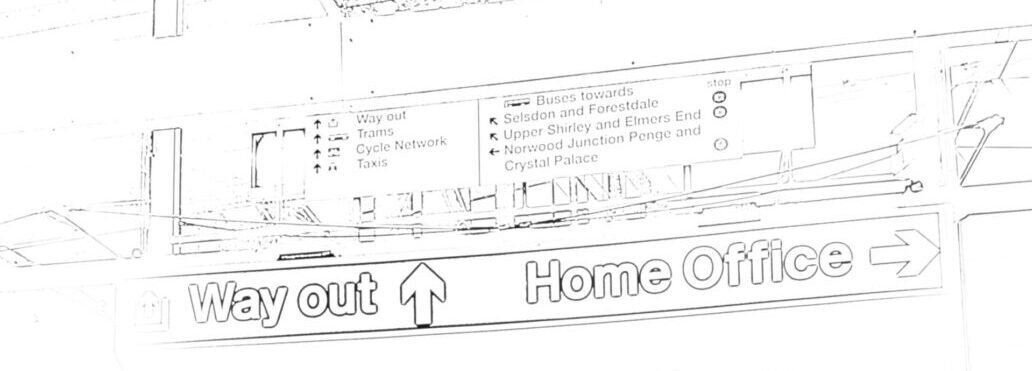Windrush lessons
Following the Windrush scandal in 2018, a review was undertaken and a report Windrush Lessons Learned Review by Wendy Williams – GOV.UK (www.gov.uk) was published in March 2020. The Review was critical of the immigration decision-making process, including the quality of some decisions made and the lack of engagement and empathy by Home Office casework decision makers. The review found that decisions were sometimes based on completing a checklist, rather than assessing and evaluating a case in its full context.
The criticism of the Home Office decision making does not come as a surprise for those who practice UK immigration law, or those who had their visa applications refused. The Home Office is a large organisation with limited resources, shortage of staff, complex internal structure, complicated immigration rules, and government policies to follow that not always support more immigration. All of this without a doubt impacts on the quality of the immigration caseworkers’ decisions.
The way forward
The new ‘Ethical Decision-Making Model’ is only a short guidance document, but it is good to see that the Home Office is acknowledging their shortcomings and is making some effort to improve. Home Office caseworkers frequently have discretion granted to them within the immigration rules, that allows them to request an additional evidence or seek clarifications from the visa applicant. If they use this discretionary power in each case where there is such an opportunity, it will lead to many more applications being granted.

Home Office guidance
In response to the criticism in the Windrush Review, on 11th November 2021 the Home Office published The Ethical Decision-Making Model (publishing.service.gov.uk) guidance for the Home Office staff making decisions involving difficult ethical issues. The ethical issues are more likely to be encountered in family visa applications, but the principle of ‘assessing and evaluating a case in its full context’ apply across the board to all types of immigration applications.
The ‘Ethical Decision-Making Model’ makes it clear that it does not replace the existing immigration legislation, rules, or guidance, nor does it constitute a separate route to exercise discretion or grant leave. It states that its purpose is to encourage critical thinking in decision making. It encourages decision makers to think critically about exercising their discretion when such discretion is given to them, and to escalate an issue where it cannot be satisfactorily resolved within the current legal and policy framework.
Decision- making process
The new ‘Ethical Decision-Making Model’ explains that the existing decision-making process should be followed to the point where decision makers have a proposed decision on the visa application. Once they have a proposed decision, they should reflect and consider the potential impact of the decision and consider if there are any ethical or unintended consequences of this proposed decision that concern them. If they do not have any concerns with the impact of the proposed decision, they can proceed with decision. If they have concerns, should follow the steps below:
1. What is it about the proposed decision that makes you feel uncomfortable?
2. Are you able to make a different decision by applying current rules and guidance that resolves the issue?
3. If you cannot satisfactorily resolve the issue, or do not feel you have the authority to take a different decision, you should discuss the case with someone. This can be with your line manager, team leader or a colleague.
4. If you feel the issue is not satisfactorily resolved, you can escalate the case through the escalation routes available to you for example Chief Caseworkers Unit for Asylum and Protection and Customer Services, the Safety Valve Mechanism for Immigration Enforcement, Guidance and Quality Team for HMPO and your regional command centre for Border Force.

Home Office Civil Service Code
The ‘Ethical’ model is to sit alongside the Home Office Values’ and the ‘Civil Service Code’, which should guide all actions and define ethics. According to The Civil Service code – GOV.UK (www.gov.uk) Civil Servants are supposed to carry out their role with dedication and commitment to the Civil Service and its core values: integrity, honesty, objectivity and impartiality, that are defined as follows:
- ‘integrity’ is putting the obligations of public service above your own personal interests
- ‘honesty’ is being truthful and open
- ‘objectivity’ is basing your advice and decisions on rigorous analysis of the evidence
- ‘impartiality’ is acting solely according to the merits of the case and serving equally well governments of different political persuasions

Conclusions
The ‘Ethical’ guidance is short and it looks good on paper, however, it remains to be seen how it will be implemented by the Home Office caseworkers making decisions on the visa applications. Will they look to grant the visas, or, will they look for reasons to refuse. Certainly the approach to look for reasons to grant can increase the number of successful applications. In many cases a simple request for an additional document or request for further information may result in a visa application being granted. The ‘Ethical’ guidance is something to bear in mind and cite in our cover letters for visa applications, to remind the Home Office caseworkers of their duties.

Pingback:Deprivation of British citizenship-present and future 2021